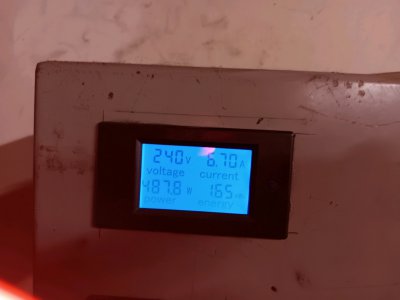- Joined
- Aug 2, 2020
- Messages
- 685
Could I run 7 different machines with your unit? Not all at the same time of course.Sometimes the old ways are not the best way.
But I have idled my 3 hp lathe and the two motors on my mill = 1 1/3 hp, at the same time just to test it.
And of the 2 I've built, neither cost me over $200.
Lastly, an rpc with a kit from the place I linked to was simple to build and I'm kind of a caveman about electrics.
To be fair, my 7 1/2 hp unit does burn most of 500 watts just to have it up and running.


